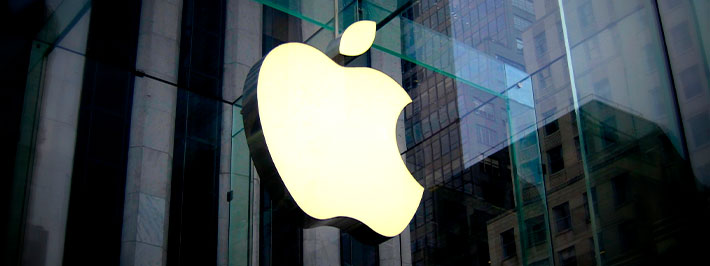
Apple will use "green" aluminum for its new iPhone SE
Apple is timidly but surely moving toward zero carbon.
After reducing its carbon footprint associated with aluminum by 70%, Apple is committed to making devices that are environmentally friendly by 2030. To do this, the company plans to use the first low-carbon aluminum for its iPhone SE.
Carbon footprint reduction issues have now become a priority for tech industries as well as their consumers. This is why special attention is now being paid to the way our connected objects are made. Previously not known for caring about the environment, Apple appears to be taking initiatives since 2020 to reduce the carbon content of its products and speed up the recycling of its smartphones and computers. Among them is "green" aluminum, an infinitely recyclable metal that the American firm intends to use for its next terminals, starting with the iPhone SE.
iPhone SE: Apple's first carbon-neutral smartphone
Since 2016, Apple has regularly made announcements about what it calls "green bonds" that it imposes on itself (or rather the IPPC). Therefore, it is within the framework of this resource renewal policy that the company has announced that it is purchasing carbon-free aluminium, also called "green" aluminium. The goal is that "by 2030, every Apple device sold will have a net-zero climate impact," says Lisa Jackson, Apple's vice president responsible for environmental, policy and social initiatives.
This metal has the peculiarity of being infinitely recyclable and it is thanks to the collaboration with the Quebec company Elysis - which to date is the only company capable of producing this aluminum on an industrial scale - that Apple will be able to meet its objective and benefit its terminals, including the iPhone SE.
The iPhone SE will be the first carbon-free iPhone
"What we call green aluminum is a metal produced from a renewable source. There is a premium in the metal market with a lower environmental footprint. At Elysis, we offer technology that could improve this premium by also decarbonizing production. We have developed a process that does not use carbon anodes and only generates oxygen as a by-product".
Although green aluminum is the only metal that does not emit carbon during the smelting process, it should be noted that the primary production of aluminum (mining and refining) is still extremely energy intensive and laptops, iPads and iPhones need a large amount of this metal for its manufacture.
However, it is a revolution, when we know that the aluminum sector directly generates 1% of the greenhouse gas emissions of the entire world industry, this innovation should contribute to a significant reduction in the carbon footprint generated by this sector.
Apple invests $4.7 billion in carbon neutrality
In all, Apple has invested $4.7 billion to accelerate the company's progress toward its goal of achieving carbon neutrality in its products, but also across its entire supply chain, by 2030. did he care about the planet at all? Because remember, in January 2011, Apple had been questioned by five environmental associations that exposed the environmental damage of several of its suppliers in China. These same NGOs, who received no response, had painted an unfriendly picture of the firm by publishing two parts of The Other Side of Apple.
But it seems that Apple has learned from its mistakes and really wants to play a part in the rise of a more environmentally friendly way of life. The company even goes so far as to "commit to leaving the planet in a better state than we found it" as we can read in the firm's official press release. We are waiting to see!
Anyway, Apple will not be the only one to join the eco-responsible movement. Microsoft had already unveiled its environmental plan in 2020 with the aim of eliminating more carbon than it has emitted since its creation in 1975. As for the companies Amazon and Google, they still take a little time setting their goals for carbon neutrality by 2040.